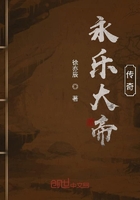Private credit was therefore paralyzed, circulation restricted, production at a standstill before the February Revolution broke out.The revolutionary crisis increased the commercial crisis.And if private credit rests on confidence that bourgeois production in the entire scope of its relations -- the bourgeois order -- will not be touched, will remain inviolate, what effect must a revolution have had which questioned the basis of bourgeois production, the economic slavery of the proletariat, which set up against the Bourse the sphinx of the Luxembourg? The uprising of the proletariat is the abolition of bourgeois credit, for it is the abolition of bourgeois production and its order.Public credit and private credit are the economic thermometer by which the intensity of a revolution can be measured.The more they fall, the more the fervor and generative power of the revolution rises.
The Provisional Government wanted to strip the republic of its anti bourgeois appearance.And so it had, above all, to try to peg the exchange value of this new form of state, its quotation on the Bourse.
Private credit necessarily rose again, together with the current Bourse quotation of the republic.
In order to allay the very suspicion that it would not or could not honor the obligations assumed by the monarchy, in order to build up confidence in the republic's bourgeois morality and capacity to pay, the Provisional Government took refuge in braggadocio as undignified as it was childish.In advance of the legal date of payment it paid out the interest on the 5-percent, 4 ½-percent and 4-percent bonds to the state creditors.
The bourgeois aplomb, the self-assurance of the capitalists, suddenly awoke when they saw the anxious haste with which this government sought to buy their confidence.
The financial embarrassment of the Provisional Government was naturally not lessened by a theatrical stroke which robbed it of its stock of ready cash.The financial pinch could no longer be concealed and petty bourgeois, domestic servants, and workers had to pay for the pleasant surprise which had been prepared for the state creditors.
It was announced that no more money could be drawn on savings bank books for an amount of over a hundred francs.The sums deposited in the savings banks were confiscated and by decree transformed into an irredeemable state debt.This embittered the already hard-pressed petty bourgeois against the republic.Since he received state debt certificates in place of his savings bank books, he was forced to go to the Bourse in order to sell them and thus deliver himself directly into the hands of the Bourse jobbers against whom he had made the February Revolution.
The finance aristocracy, which ruled under the July Monarchy, had its high church in the Bank.just as the Bourse governs state credit, the Bank governs commercial credit.
Directly threatened not only in its rule but in its very existence by the February Revolution, the Bank tried from the outset to discredit the republic by ****** the lack of credit general.It suddenly stopped the credits of the bankers, the manufacturers, and the merchants.As it did not immediately call forth a counterrevolution, this maneuver necessarily reacted on the Bank itself.The capitalists drew out the money they had deposited in the vaults of the Bank.The possessors of sank notes rushed to the pay office in order to exchange them for gold and silver.
The Provisional Government could have forced the Bank into bankruptcy without forcible interference, in a legal manner; it would have had only to remain passive and leave the Bank to its fate.The bankruptcy of the Bank would have been the deluge which in an instant would have swept from French soil the finance aristocracy, the most powerful and dangerous enemy of the republic, the golden pedestal of the July Monarchy.And once the Bank was bankrupt, the bourgeoisie itself would have had to regard it as a last desperate attempt at rescue, if the government had formed a national bank and subjected national credit to the control of the nation.
The Provisional Government, on the contrary, fixed a compulsory quotation for the notes of the Bank.It did more.it transformed all provincial banks into branches of the Banque de France and allowed bonds to the state creditors.The bourgeois aplomb, the self-assurance of the capitalists, suddenly awoke when they saw the anxious haste with which this government sought to buy their confidence.
The financial embarrassment of the Provisional Government was naturally not lessened by a theatrical stroke which robbed it of its stock of ready cash.The financial pinch could no longer be concealed and petty bourgeois, domestic servants, and workers had to pay for the pleasant surprise which had been prepared for the state creditors.
It was announced that no more money could be drawn on savings bank books for an amount of over a hundred francs.The sums deposited in the savings banks were confiscated and by decree transformed into an irredeemable state debt.This embittered the already hard-pressed petty bourgeois against the republic.Since he received state debt certificates in place of his savings bank books, he was forced to go to the Bourse in order to sell them and thus deliver himself directly into the hands of the Bourse robbers against whom he had made the February Revolution.
The finance aristocracy, which ruled under the July Monarchy, had its high church in the Bank.just as the Bourse governs state credit, the Bank governs commercial credit.














